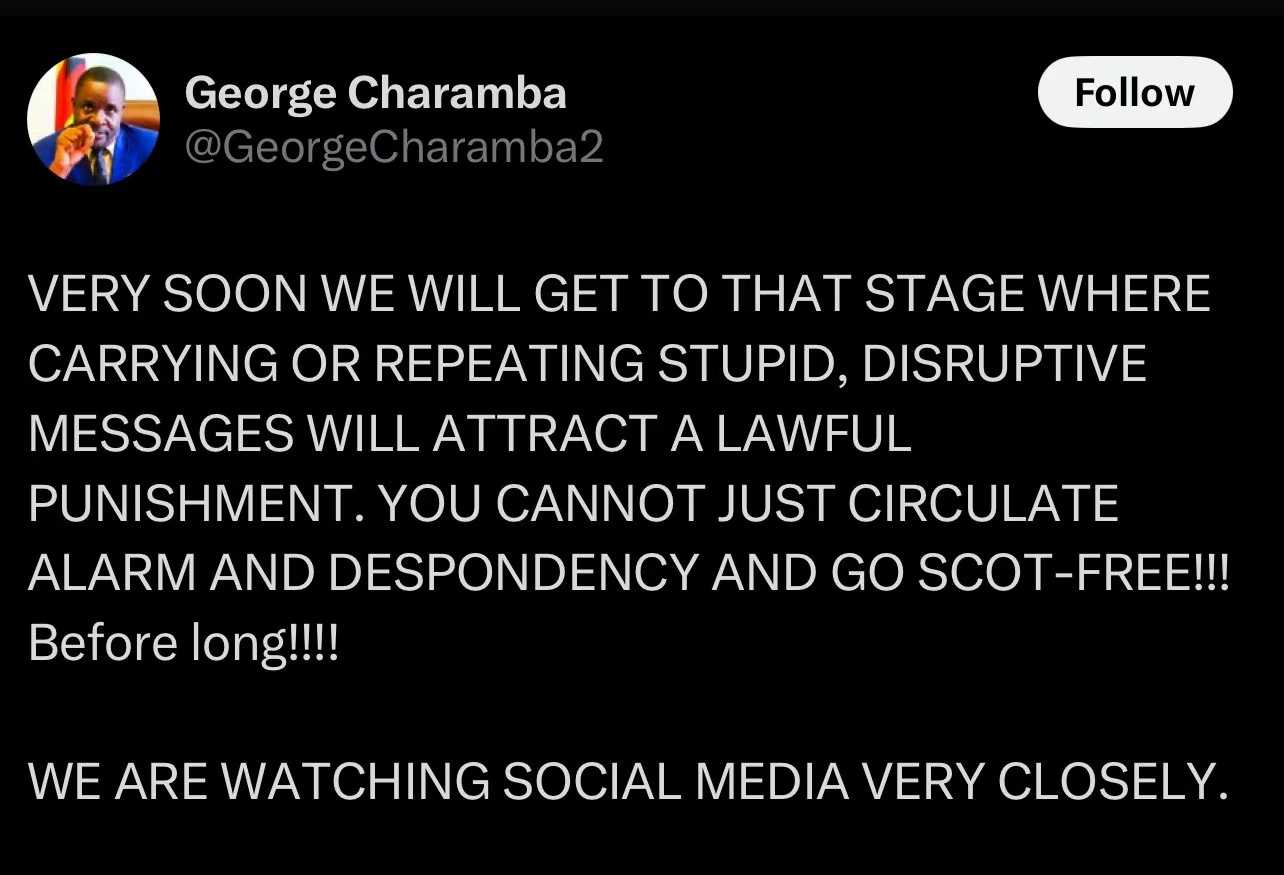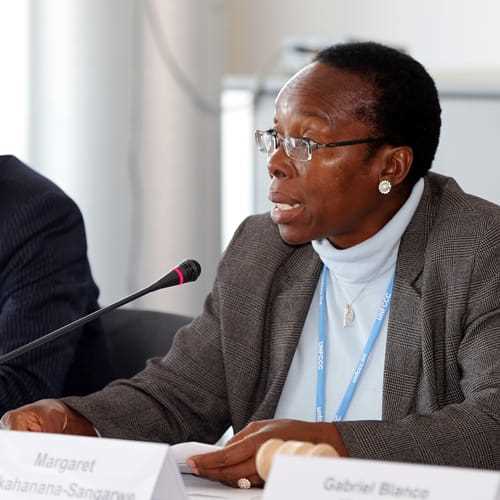
ZimNow Reporter
The Zimbabwean government has issued a stark warning about impending legal action against social media users accused of spreading “disruptive messages” and “alarm and despondency,” as dissent against President Emmerson Mnangagwa’s administration gains momentum.
The threat, delivered via X by presidential spokesperson George Charamba, underscores the government’s escalating efforts to stifle civil criticism in the middle of a deteriorating democratic climate and growing public unrest.
George Charamba, who serves as Zimbabwe’s Deputy Chief Secretary to the President and Cabinet and Presidential Spokesperson, posted a fiery statement on his official Twitter account (@GeorgeCharamba2) this week:
“VERY SOON WE WILL GET TO THAT STAGE WHERE CARRYING OR REPEATING STUPID, DISRUPTIVE MESSAGES WILL ATTRACT A LAWFUL PUNISHMENT. YOU CANNOT JUST CIRCULATE ALARM AND DESPONDENCY AND GO SCOT-FREE!!! Before long!!!! WE ARE WATCHING SOCIAL MEDIA VERY CLOSELY.”
The tweet, written in Charamba’s characteristic all-caps style, signals it has been interpreted as a weapon to stop people from sharing videos of war vet Blessing Geza calling for Mnangagwa’s ouster.
The phrase “alarm and despondency” echoes language historically used in Zimbabwean law to suppress dissent, including Section 31 of the Criminal Law Code, which criminalizes undermining public confidence in the state.
President Mnangagwa, who came to power in 2017 after a military-assisted ouster of longtime leader Robert Mugabe, has faced mounting criticism over his failure to turn the economy around and his push to stay in power beyond his constitutionally mandated 2028 term limit.
Zanu-PF members, opposition groups, activists, and ordinary citizens have increasingly turned to social media platforms like X, Facebook, and WhatsApp to organize protests and share grievances.
Human rights organizations and legal experts have condemned Charamba’s statement as a blatant attack on free expression. “This is a thinly veiled attempt to criminalize dissent ahead of the constitutional coup,” said a prominent opposition figure.
“The government fears the power of social media to expose its failures and mobilize citizens.”




















Leave Comments